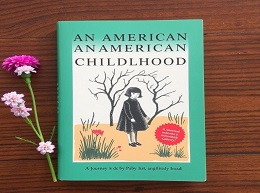As I Walked Out One Midsummer Morning

Exploring "As I Walked Out One Midsummer Morning": An Engaging Review
Laurie Lee's As I Walked Out One Midsummer Morning is a captivating memoir that recounts the author's journey from his home in the Cotswolds to the vibrant and tumultuous land of Spain in the 1930s. This book, a sequel to Cider with Rosie, offers readers a rich tapestry of experiences and observations, imbued with Lee's poetic prose and keen sense of place. Through this review, we will explore the key themes, memorable moments, and the overall impact of Lee's narrative.
Setting the Scene: The Journey Begins
The memoir opens with a young Laurie Lee leaving his idyllic village of Slad in Gloucestershire. Armed with little more than a violin and an adventurous spirit, Lee sets out to see the world. His decision to walk to London marks the beginning of a journey that would take him across England and into the heart of Spain.
Example: The Departure
Lee's description of his departure is both poignant and evocative. He writes, "I had a few shillings in my pocket and a hazy idea of going south." This simple yet profound statement encapsulates the spirit of adventure and the sense of freedom that permeates the book. The initial chapters, detailing his walk through the English countryside and the kindness of strangers he meets along the way, set the tone for the rest of the memoir.
Arrival in Spain: A New World Unfolds
Upon reaching the coast and boarding a ship to Spain, Lee's narrative takes on a new vibrancy. Spain, with its vibrant culture, stark landscapes, and political unrest, becomes a character in its own right. Lee's observations and experiences in Spain are rich with detail and emotion, providing readers with a vivid picture of the country during this tumultuous time.
Example: The Spanish Landscape
Lee's arrival in Spain is marked by his awe at the landscape. He writes, "The hot south climbed into the carriage like a lover." This metaphor beautifully captures the intensity and passion of the Spanish environment. His descriptions of the towns, cities, and countryside he traverses are filled with color and life, bringing the reader along on his journey.
Encounters and Experiences: The Heart of the Memoir
One of the most compelling aspects of As I Walked Out One Midsummer Morning is Lee's encounters with a diverse array of people. From peasants and poets to soldiers and fellow travelers, each person Lee meets adds depth to his narrative and provides insights into Spanish life and culture.
Example: The Grape Harvesters
One particularly memorable episode is Lee's time spent with grape harvesters in Castilla. He describes the backbreaking work, the camaraderie among the workers, and the simple yet profound pleasures of communal living. This experience not only provides a glimpse into the harsh realities of rural life but also highlights the resilience and warmth of the Spanish people.
Political Tensions: The Shadow of Civil War
As Lee travels deeper into Spain, the political tensions of the time become increasingly evident. The country is on the brink of civil war, and Lee's narrative reflects the growing unrest and uncertainty. His observations on the political climate are astute and poignant, providing a historical context that enriches the memoir.
Example: The Political Discussions
Lee recounts heated discussions in cafes and town squares, where passionate debates about the future of Spain take place. He writes, "Everywhere the air was thick with argument and uncertainty." These moments capture the intensity of the period and the deep divisions within Spanish society. Lee's ability to convey the gravity of the situation while maintaining a personal and human perspective is one of the strengths of the memoir.
The Power of Language: Lee's Poetic Prose
One of the most striking features of As I Walked Out One Midsummer Morning is Laurie Lee's lyrical writing style. His prose is poetic and evocative, transforming everyday scenes into moments of beauty and significance. Lee's use of language not only enhances the narrative but also immerses the reader in his experiences.
Example: The Spanish Nights
Lee's descriptions of the Spanish nights are particularly memorable. He writes, "The night was alive with the sound of crickets and the scent of wild herbs." This sensory detail brings the scene to life, allowing readers to almost hear the crickets and smell the herbs themselves. Such passages demonstrate Lee's mastery of language and his ability to create an immersive reading experience.
Reflections and Revelations: A Journey of Self-Discovery
As much as As I Walked Out One Midsummer Morning is a travel memoir, it is also a journey of self-discovery for Lee. Throughout his travels, he reflects on his own identity, his place in the world, and the broader human experience. These reflections add a layer of introspection to the memoir, making it not just a recounting of events, but a deeper exploration of life and meaning.
Example: The Sense of Belonging
Lee often grapples with the idea of belonging and home. In one reflective passage, he writes, "I was an Englishman in Spain, a young man far from home, yet I felt a strange sense of belonging." This paradoxical feeling of being both a stranger and at home is a recurring theme in the memoir, highlighting the universal quest for identity and connection.
The Legacy of As I Walked Out One Midsummer Morning
Laurie Lee's As I Walked Out One Midsummer Morning is more than just a travel memoir; it is a beautifully crafted narrative that captures the essence of a young man's journey through a country on the brink of war. Lee's poetic prose, keen observations, and the rich tapestry of experiences and encounters make this memoir a timeless piece of literature.
For readers who appreciate beautifully written travel narratives and personal reflections, As I Walked Out One Midsummer Morning offers a deeply engaging and enriching experience. Lee's ability to transform the ordinary into the extraordinary and to find beauty and meaning in every moment is what makes this memoir a true classic.
In conclusion, Laurie Lee's journey is not just a physical one across Spain, but a profound exploration of life, identity, and the human spirit. As I Walked Out One Midsummer Morning remains a testament to the power of travel and the enduring beauty of well-crafted storytelling.












